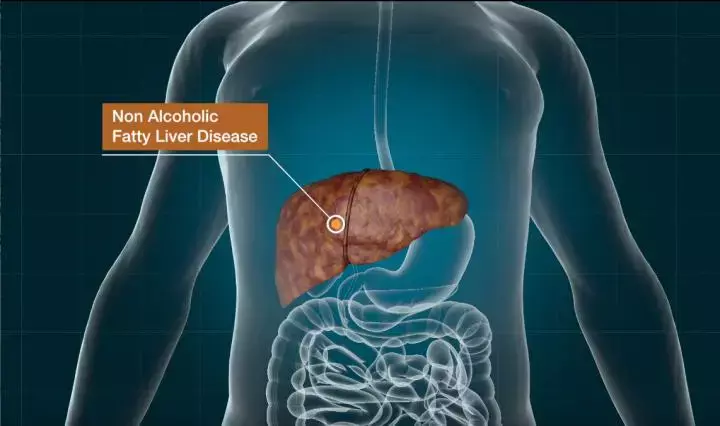- Home
- Medical news & Guidelines
- Anesthesiology
- Cardiology and CTVS
- Critical Care
- Dentistry
- Dermatology
- Diabetes and Endocrinology
- ENT
- Gastroenterology
- Medicine
- Nephrology
- Neurology
- Obstretics-Gynaecology
- Oncology
- Ophthalmology
- Orthopaedics
- Pediatrics-Neonatology
- Psychiatry
- Pulmonology
- Radiology
- Surgery
- Urology
- Laboratory Medicine
- Diet
- Nursing
- Paramedical
- Physiotherapy
- Health news
- Fact Check
- Bone Health Fact Check
- Brain Health Fact Check
- Cancer Related Fact Check
- Child Care Fact Check
- Dental and oral health fact check
- Diabetes and metabolic health fact check
- Diet and Nutrition Fact Check
- Eye and ENT Care Fact Check
- Fitness fact check
- Gut health fact check
- Heart health fact check
- Kidney health fact check
- Medical education fact check
- Men's health fact check
- Respiratory fact check
- Skin and hair care fact check
- Vaccine and Immunization fact check
- Women's health fact check
- AYUSH
- State News
- Andaman and Nicobar Islands
- Andhra Pradesh
- Arunachal Pradesh
- Assam
- Bihar
- Chandigarh
- Chattisgarh
- Dadra and Nagar Haveli
- Daman and Diu
- Delhi
- Goa
- Gujarat
- Haryana
- Himachal Pradesh
- Jammu & Kashmir
- Jharkhand
- Karnataka
- Kerala
- Ladakh
- Lakshadweep
- Madhya Pradesh
- Maharashtra
- Manipur
- Meghalaya
- Mizoram
- Nagaland
- Odisha
- Puducherry
- Punjab
- Rajasthan
- Sikkim
- Tamil Nadu
- Telangana
- Tripura
- Uttar Pradesh
- Uttrakhand
- West Bengal
- Medical Education
- Industry
Parkinson's drug Pimavanserin may help treat NAFLD, finds study
 NONALCOHOLIC FATTY LIVER DISEASE (NAFLD) OFTEN LEADS TO VARIOUS LIVER COMPLICATIONS, BUT THERE IS A LACK OF DRUGS FOR THE TREATMENT OF NAFLD. view more CREDIT: GWANGJU INSTITUTE OF SCIENCE AND TECHNOLOGY
NONALCOHOLIC FATTY LIVER DISEASE (NAFLD) OFTEN LEADS TO VARIOUS LIVER COMPLICATIONS, BUT THERE IS A LACK OF DRUGS FOR THE TREATMENT OF NAFLD. view more CREDIT: GWANGJU INSTITUTE OF SCIENCE AND TECHNOLOGYNonalcoholic fatty liver disease (NAFLD) is a condition characterized by excessive fat accumulation in the liver that can lead to serious complications, including nonalcoholic steatohepatitis, cirrhosis, and cancer.
At present there is a dearth of drugs to treat NAFLD, with current therapies revolving around lifestyle interventions.
Researchers at Gwangju Institute of Science and Technology, Korea have found that serotonin antagonist Pimavanserin may help treat NAFLD by regulating lipid metabolism in the liver. Pimavanserin is drug approved for the treatment of Parkinson's.
The findings of the study have been published in the Journal of Medicinal Chemistry.
Prof Jin Hee Ahn lead author says, "NAFLD is a serious public health problem worldwide. However, no pharmacological agents have been specifically approved for its treatment yet."
For their study, the scientists focused on a well-known neurotransmitter called serotonin. Serotonin is widely known as the "happy" neurotransmitter, and its deficiency in the central nervous system (CNS) can cause various brain disorders. But, not many know that it is also found in the gastrointestinal tract; here, it is called "peripheral" serotonin, which has different functions altogether, such as regulating lipid metabolism in the liver.
In a previous study published in Nature Communications, Prof Hail Kim, the co-corresponding author of this study, had investigated peripheral serotonin as a drug target with knockout mice models (mice lacking functional peripheral serotonin). This study reported that these mice showed reduction in liver weight, hepatic lipid accumulation, and hepatic triglyceride content and improved NAFLD activity.
These findings formed the basis of Prof Ahn's study and prompted the research group to identify new peripheral serotonin antagonists. The scientists selected a CNS drug approved for the treatment of Parkinson's, called pimavanserin. Pimavanserin acts as an "antagonist" to serotonin, mimicking its effect in the CNS. The scientists then structurally modified this drug such that it cannot permeate the blood-brain barrier, by adding different types of molecules to it. In this way, they generated an array of novel compounds. On testing these, the scientists found one compound in particular to show promising results: it showed very low blood-brain barrier permeation and thus had the potential to target peripheral serotonin systems.
The scientists tested this compound in obese mice with impaired liver function. Interestingly, the mice showed improvement in symptoms of fatty liver disease, such as improved glucose tolerance. Additionally, their body fat decreased while lean body mass increased. Prof Ahn says, "Through the chemical optimization of an existing drug, pimavanserin, we identified a new peripheral agent for the possible treatment of NAFLD."
Although this novel compound is yet to be tested in humans, these findings show that it has remarkable potential in treating fatty liver disease. Optimistic about these findings, Prof Ahn concludes, "We hope that our novel drug candidate will offer relief to patients bearing the brunt of NAFLD."
For further reference log on to:
J.Med. Chem. 2020, 63, 8, 4171–4182
Dr Kamal Kant Kohli-MBBS, DTCD- a chest specialist with more than 30 years of practice and a flair for writing clinical articles, Dr Kamal Kant Kohli joined Medical Dialogues as a Chief Editor of Medical News. Besides writing articles, as an editor, he proofreads and verifies all the medical content published on Medical Dialogues including those coming from journals, studies,medical conferences,guidelines etc. Email: drkohli@medicaldialogues.in. Contact no. 011-43720751


